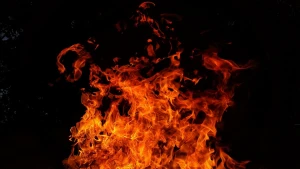
Putin mocks Trump’s peace efforts
A plan that is not agreed upon by all parties to the conflict is not a plan, but rather a platform reflecting one side's vision of how the negotiation process should unfold
Russian Deputy Foreign Minister Sergey Ryabkov emphasized that without fulfilling Putin's conditions for the withdrawal of Ukrainian troops from the parts of Donetsk, Luhansk, Kherson, and Zaporizhzhia regions under the control of the legitimate Ukrainian government, and Ukraine's final rejection of NATO membership, there can be no political resolution to the Russian-Ukrainian crisis. Ryabkov stressed that the sooner the United States realizes this, the more opportunities there will be to succeed in negotiations that could begin to end the Russian-Ukrainian war.
Thus, the Deputy Foreign Minister, who is responsible for relations with the U.S., made it clear that Russia's approach to the negotiations process to end the war will continue to be based on Putin's speech at the Russian Foreign Ministry’s Collegium. This speech showed that the Russian leader has not abandoned the conditions he set for Ukraine ahead of the large-scale invasion in 2022. Now, in addition to the withdrawal of Ukrainian troops from Donetsk and Luhansk regions, two more Ukrainian regions – Zaporizhzhia and Kherson – have been added to these demands.
It is hardly a sensation when both Putin and other Russian officials constantly talk about the need to take into account the realities on the ground. However, when you start to clarify what these "realities on the ground" are, it turns out that it's not so much about the realities on the ground as it is about the realities of the Russian constitution, where the Donetsk, Luhansk, Kherson, and Zaporizhzhia regions of Ukraine, as well as the Autonomous Republic of Crimea and Sevastopol, are recorded as subjects of the Russian Federation.
It is worth reminding that none of the plans proposed to President Donald Trump to end the Russian-Ukrainian war ever included the idea of withdrawing Ukrainian troops from any territories where they are present. The main point of these proposals was primarily a ceasefire between Russia and Ukraine along the front line – exactly what Russia and its leader do not find acceptable.
One could certainly argue that by doing so, Putin is raising the stakes in anticipation of real negotiations with Trump. Or it could be that Putin is not raising any stakes at all, simply believing that if Trump wants to appear as a peacemaker, he will simply accept all the conditions put forward by the Kremlin, as the alternative is the continuation of hostilities on the Russian-Ukrainian front.
We often discuss whether there is, or isn't, a plan from the American president to end the Russian-Ukrainian war, whether it will be presented at the Munich Conference by Trump’s conflict resolution representative, Keith Kellogg, or not. But on the other hand, what does it matter? After all, a plan that is not agreed upon by all parties to the conflict is not really a plan, but rather a platform that reflects one side's vision of how the negotiation process should unfold.
We have spent a lot of time commenting on the plans of Ukrainian President Volodymyr Zelenskyy, and these Ukrainian plans have always been plans for a just peace. However, even when these plans were supported by the overwhelming majority of states in the modern world, a logical question always arose: how can these plans be implemented if the Russian side does not view them as serious proposals and continues its military actions with the aim of further occupying Ukrainian territory and destroying Ukrainian infrastructure? Would it not be better to call the plans proposed by the Ukrainian president over these three years of war more of Ukraine’s vision, Ukraine’s platforms for a just peace?
The same applies to the plans of the American president – Donald Trump cannot have an uncoordinated plan with Putin, because he simply will not be able to implement it. There may be Trump's platform for ending the Russian-Ukrainian war and an attempt to align this platform with the vision of the Russian leader.
But what is most interesting here is, of course, what the U.S. president will do if he sees that the Russian leader has no intention of coordinating anything with him, but instead expects the American president to agree with Russian proposals, so to speak, with the Russian platform for ending the war. This platform includes the withdrawal of Ukrainian troops from territories that Russia has declared Russian, the demilitarization of Ukraine, and its neutral status without any clear security guarantees.
And we understand that in this situation Russia will never agree to the presence of any peacekeeping troops between the Russian and Ukrainian armies. If it believes at all that there should be any army on the territory of Ukraine, which agrees to peace.
And this is a huge question not for Putin – the positions of the Russian leader are known, and over these three years, they have not changed but have become increasingly rigid with each passing year of military conflict. The question is for the President of the United States: how does he plan to influence the Russian leader if the latter does not pay attention to his own proposals, if they even exist and will be presented? Is Trump prepared for a serious escalation of American sanctions against Russia? To fight against Russia’s "shadow" fleet? To impose secondary sanctions on the People's Republic of China and India to force them not to buy Russian oil? Or to make such proposals to China and India from the U.S. itself, which would make American oil cheaper than Russian oil?
How long should such a policy be pursued in order to force the Russian regime to stop hostilities, and is Trump prepared for the fact that this policy will be at the center of his actions throughout his entire term as president of the United States, or at least for most of it? We do not know the answers to these questions. Donald Trump has not yet been convinced that Putin is not going to agree to any conditions for ending the Russian-Ukrainian war, except those that will allow him, over the next few years, to address the issue of eliminating Ukrainian statehood – not in one step, but in several.
I have serious doubts about the realism of Washington's approach to this task. Although, perhaps, each new statement from Kremlin representatives regarding how the Russian-Ukrainian war should end brings the new American administration closer to this realism.
About the author. Vitaly Portnikov, journalist, laureate of the National Shevchenko Prize of Ukraine.
The editorial staff does not always share the opinions expressed by the blog authors.
- News













































